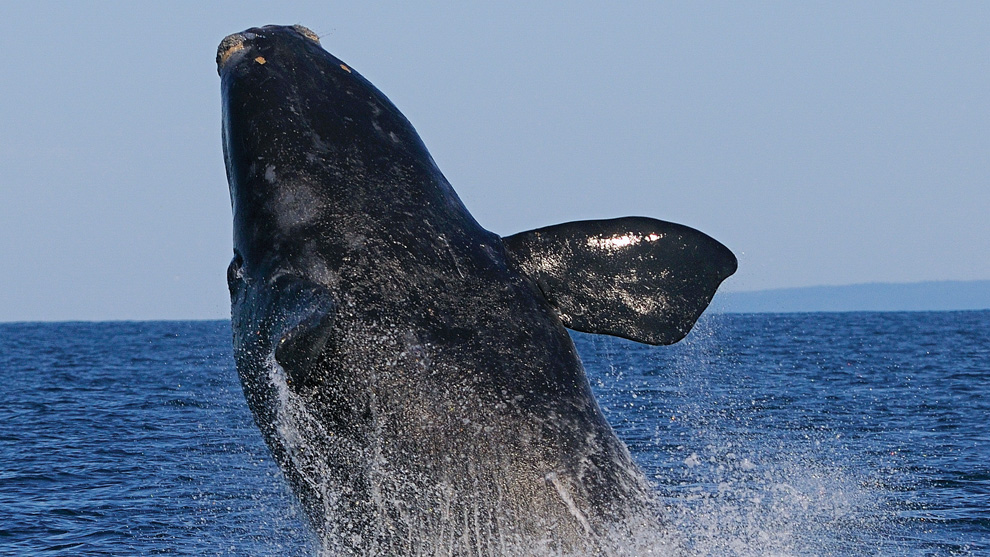Improving Public Policy

Chilean president collaborates on public-private funding plan for Patagonia parks
In May, President Sebastián Piñera of Chile announced an agreement between the Chilean government and an international conservation coalition led by Tompkins Conservation, Balloon Latam, World Wildlife Fund, and The Pew Charitable Trusts to collaborate on the creation of a public-private fund for the long-term management of Chilean Patagonia’s national parks and to support the economic development of neighboring communities. The project is intended to cover 17 national parks spanning 1,700 miles.
National Park Service receives additional appropriations for deferred maintenance
The Nationally Significant Federal Lands and Tribal Projects Program provided $123 million to the National Park Service (NPS) for transportation repair projects as part of the fiscal year 2018 and fiscal year 2019 appropriations. While many land management agencies and tribes vie for the funds, Pew’s restore America’s parks campaign worked with congressional appropriators and partners to ensure that adequate funding was dedicated to NPS. More than half of the National Park Service’s deferred maintenance needs are transportation-related.
Western U.S. states advance wildlife migration policies
In June, Oregon Governor Kate Brown (D) signed into law the Wildlife Corridor and Safe Road Crossing Act, which directs state wildlife and transportation agencies to collaborate on the identification and conservation of crucial wildlife migration pathways across the state. At the invitation of the Oregon House of Representatives and Senate natural resource committees, Pew provided technical assistance to lawmakers and testified in support of the bill. In the same month, the Western Governors Association passed the “Wildlife Migration Corridors and Habitat” resolution, which called for additional migration-related federal policies that are informed by states, better collaboration between state and federal agencies, and additional resources to build wildlife-friendly transportation infrastructure. Pew participated in a wildlife migration panel for the association in April and provided advice during the drafting of the resolution.
New help to fight antibiotic resistance
Several months after Pew’s annual Capitol Hill fly-in event “Stand Up to Superbugs” in March, House appropriators provided additional funding and support to combat antibiotic resistance and promote appropriate antibiotic use. As a result of advocacy by Pew and the Infectious Diseases Society of America, bipartisan members of the Senate and the House introduced the DISARM Act in the summer to incentivize antibiotic drug development, expand hospital stewardship programs, and improve data collection and reporting to the Centers for Disease Control and Prevention. In addition, as a result of Pew’s advocacy, the Centers for Medicare and Medicaid Services extended the timeline to finalize a proposal requiring hospitals to implement antibiotic stewardship programs as a condition of participation in Medicare and Medicaid, which was set to expire in June 2019.
Texas flood planning and mitigation laws signed
Governor Greg Abbott (R) signed two bills in June requiring local officials to develop the first watershed-level flood plans in Texas and drawing $800 million from the state’s reserve fund to finance flood mitigation projects. These measures passed during the first state legislative session since Hurricane Harvey, a storm that battered Texas in 2017 and left 89 people dead and caused an estimated $125 billion in damage to property and infrastructure. Pew’s flood-prepared communities team engaged policymakers and other stakeholders in the state to inform drafting of the hurricane recovery bills. These new laws will help Texas minimize risk from future flooding and represent one of the largest investments by a state in mitigation.
French government commits support for marine protected area in the Indian Ocean
In May, the French government announced its commitment to strongly protect 195,000 square miles of waters surrounding the Saint Paul and Amsterdam Islands, French territories in the sub-Antarctic region of the Indian Ocean. These waters are vital habitat for ecologically and economically important animals, including three species of tuna and the critically endangered Amsterdam albatross. Since 2015, Pew has worked to safeguard these vulnerable habitats by providing technical recommendations and generating support for a marine protected area with officials and nongovernmental organizations in France.
Louisiana expands access to treatment for opioid use disorder
The Louisiana legislature approved in June three bills and five resolutions to expand access to treatment for opioid use disorder. Based on recommendations that Pew provided to the state in March after an extensive system assessment, the measures will help expand the number of providers offering medication-assisted treatment across Louisiana and require that residential treatment providers offer medication-assisted treatment onsite. This effort is part of Pew’s substance use prevention and treatment initiative’s ongoing work to assist states with the adoption of policies that expand access to effective treatment for substance use disorders by 2020.
Canada protects North Atlantic right whales
Canada began implementing seasonal fishing closures in the Gulf of Saint Lawrence in May to safeguard migrating North Atlantic right whales. Entanglement in crab and lobster fisheries gear is one of the leading causes of death for the highly endangered species. Along with Canadian partners, Pew laid the groundwork for this action by supporting research and engaging in outreach with Canada’s Department of Fisheries and Oceans. This achievement marks an important milestone toward Pew’s goal of reducing deaths of North Atlantic right whales in Canada and the United States, largely caused by entanglement in fishing gear.
Nevada passes jails and community supervision reform
Nevada Governor Steve Sisolak (D) signed legislation in June that provides pretrial alternatives to jail, streamlines the parole process, and changes community supervision—practices including probation and parole, in which a person convicted of a crime is supervised rather than incarcerated. The change to supervision aims to reduce revocations of parole and probation, both of which are major drivers of incarceration in Nevada. Early estimates indicate that the population under community supervision will be reduced by approximately 10 percent, saving more than $300 million. The Crime and Justice Institute, a partner of Pew’s public safety performance project, provided technical assistance and analysis for Nevada.
Tax incentive policy
- In June, Pennsylvania Governor Tom Wolf (D) approved a bill that reforms the state’s Historical Preservation, New Jobs, and Film tax credits, each of which was recently evaluated by the state’s Independent Fiscal Office. Pew’s advocacy and technical assistance with the office helped make the case for establishing this evaluation process in late 2017.
- Washington, D.C., Mayor Muriel Bowser (D) signed two pieces of legislation in July that include the redirection of nearly $16 million in forgone revenue away from the district’s signature package of economic development incentives, known as the Qualified High Technology Companies program, which offers incentive packages to high-tech companies locating in the District. An evaluation of the program by the district’s Office of the Chief Financial Officer in 2018 prompted the changes. Pew pushed for passage of the law that requires regular evaluation of the district’s tax incentives in 2015 and continues to provide technical assistance to the city’s evaluators.
New retirement savings plans rule cites Pew research
The U.S. Department of Labor in July issued a new rule making it easier for smaller private-sector companies to band together and offer retirement savings plans to their workers through association-based multiple employer plans. The Labor Department rule and its accompanying fact sheet cited Pew retirement savings research that found that only 53 percent of small to midsized businesses offer a retirement plan, and that 37 percent of those not offering a plan cited cost as a reason.









